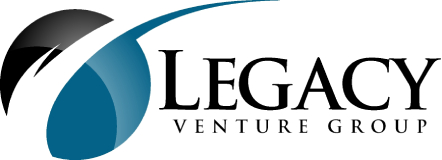
Purchasing a medical billing company for sale

Purchasing a medical billing company can be a lucrative investment, as it provides a steady income stream and has a large customer base in the healthcare sector. However, structuring the offer correctly and conducting thorough due diligence is essential. This guide will walk you through key steps and considerations, including the differences between Asset Sale and Stock Sale, so you can make an informed, structured offer.
Deciding on an Asset Sale vs. Stock Sale
- Asset Sale
- In an Asset Sale, you purchase specific assets of the medical billing business for sale, such as equipment, client contracts, and goodwill, while the seller retains liabilities. This approach is often simpler and preferred for buyers because it allows them to leave behind potential hidden liabilities.
- Stock Sale
- In a Stock Sale, you purchase the owner’s shares, effectively taking over all assets, liabilities, and potential legal or tax issues. While a stock sale may offer tax advantages, it requires careful due diligence to avoid unexpected obligations.
- Which to Choose for a Medical Billing Company?
- Many buyers prefer an Asset Sale to minimize exposure to liabilities, especially in medical billing where compliance and regulatory issues are complex. However, a Stock Sale might be advantageous if the company has critical client contracts that are challenging to reassign, or if maintaining the current structure is important for continuity.
Structuring the Offer
- Initial Financial Review
- Request high-level financials, such as profit and loss statements. Full tax returns and additional details are often accessible after making an offer.
- Making the Offer
- Decide whether to proceed with an Asset Purchase Agreement (APA) or a Stock Purchase Agreement (SPA), depending on your preference for asset or stock sale. Make sure to include contingencies, especially for due diligence and financing, to allow adjustments if any red flags arise.
- Benefits of Each Type of Agreement
- APA is usually cleaner for medical billing companies with straightforward assets, while SPA might be preferable if you’re acquiring the company as a whole entity with client retention considerations.
Due Diligence Contingencies
- Conduct Thorough Due Diligence
- Allow at least 3-4 weeks for due diligence, especially for a medical billing company, where compliance with healthcare regulations is critical. Engage an accountant and attorney with expertise in the healthcare and billing industries.
- Financing with SBA Loan
- Approach multiple banks (preferably two or three) for SBA financing. SBA loans often require 10% down and may extend up to 10 years, or 25 years if real estate is included. Having a structured timeline with banks ensures a smoother process.
- Confirm Lease Transfer Terms
- If the business rents its office space, ensure the lease can be transferred or renewed. SBA financing typically requires a lease term or options totaling 10 years, especially if physical assets or equipment tied to the business are part of the sale.
- Healthcare Compliance
- In addition to financial due diligence, work with advisors to review the company’s compliance with healthcare laws, including HIPAA. Ensure the company has no pending legal issues or liabilities tied to compliance.
Building Your Support Team
- Hire Industry-Specific Advisors
- Engage a business broker, healthcare attorney, and accountant experienced in medical billing acquisitions. They will help you understand the nuances of the transaction and identify any red flags.
- Negotiate Escrow Deposit
- A significant escrow deposit, held by a third-party attorney or escrow firm, shows the seller you are serious. This amount varies, but 5-10% is typical.
- Make a Reasonable Offer
- Assess the business’s value based on cash flow and growth potential. Balance the offer based on the business’s performance to avoid overpayment or underestimation.
Cash Flow and Financial Preparation
- Assess Cash Flow Sustainability
- Ensure the medical billing company’s cash flow can cover loan payments, especially if the business’s revenue has seasonal or client-dependent variations.
- Plan for System Upgrades or Investments
- Medical billing companies often require software or technology upgrades. Budget for these improvements as they may be necessary for scaling the business.
- Request a Seller’s Disclosure
- A seller’s disclosure document can provide insights into any liabilities, potential issues, or upcoming challenges. This helps you better prepare for post-acquisition operations.
Conducting Initial Meetings and Observations
- Observe the Company’s Operations
- If feasible, visit the company to understand the workflow and assess efficiency.
- Meet the Seller
- Arrange to meet with the seller, ideally face-to-face or through a video conference if you’re not local. This meeting is crucial to assess their transparency and understand the business’s strengths and weaknesses.
Checklist for Purchasing a Medical Billing Company
Preliminary Research
- ☐ Sign a Non-Disclosure Agreement (NDA) to access the company’s initial financials.
- ☐ Review high-level financial documents like profit and loss statements.
Making the Offer
- ☐ Decide on Asset Sale vs. Stock Sale.
- ☐ Structure the offer through either an APA or SPA.
- ☐ Include contingencies for due diligence, financing, and lease approval.
Due Diligence
- ☐ Secure an accountant and attorney familiar with healthcare and compliance.
- ☐ Get SBA loan pre-approval, with defined timelines.
- ☐ Confirm lease transfer or renewal terms with the landlord.
- ☐ Assess healthcare compliance and liabilities.
Financial Planning
- ☐ Confirm cash flow meets personal and loan repayment needs.
- ☐ Budget for necessary software or technology upgrades.
Operational Assessment
- ☐ Observe daily operations (if possible).
- ☐ Arrange a seller meeting with prepared questions.
Buying a medical billing company can be an excellent investment in the right conditions. By choosing between an Asset Sale and Stock Sale, structuring your offer effectively, and conducting comprehensive due diligence, you can make a well-informed purchase that positions you for future success in the healthcare sector.
